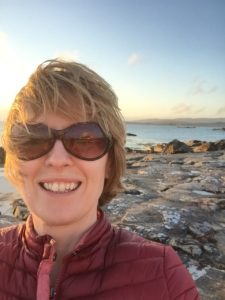 My husband, an anaesthetist and intensive care consultant, took his own life on 23 October 2017. Now and again, I speak publicly about Richard’s death, usually to fellow doctors, sometimes to wider audiences. I never fail to be moved by the responses afterwards.
My husband, an anaesthetist and intensive care consultant, took his own life on 23 October 2017. Now and again, I speak publicly about Richard’s death, usually to fellow doctors, sometimes to wider audiences. I never fail to be moved by the responses afterwards.
At a recent Hay festival event on suicide, someone in her early 20s spoke eloquently and despairingly about her father’s numerous attempts to take his own life. He is still alive, but she doesn’t know for how much longer, nor what to do to help keep him safe. I reflected that she is probably doing all that she can on the latter front, and that the psychological work, for her, perhaps lies more in learning to live with the terrible uncertainty inherent in her relationship with her father; the fact that, eventually, sooner or later, she will lose him—if not to suicide, then to something else. I didn’t talk for long along those lines, however, because I am not sure how helpful that line of thinking is to someone at her stage of life, living every day with the stark horror of the prospect of one day finding her father lifeless, and that her worst fears have been realised.
The trouble with losing someone in this way and then talking about it to others is that the experience doesn’t make you any sort of expert overnight on the topic, and I try to bear that in mind. What helps me live with the aftermath of Richard’s death may not help others.
I find it helpful to consider that Richard led a good and useful life for 47 years, was deeply loved, loved others, gave our children a solid and stable experience of being fathered warmly and well, and lives on in our family life in our hearts and minds and conversations and habits—if not as an embodied presence.
I try not to dwell on the many family milestones he has already missed, and will continue to miss: my daughter’s 18th birthday, passing her driving licence on the first attempt (like her father before her, and unlike her mother), my son’s GCSE results due out this summer, and so on. We had him for the greater part of their childhood. That’s something, at least, to hang onto.
He remains embedded in our family’s psyche. We know what he would say, faced with the everyday dilemmas that arise, and regarding the decisions—large and small—that we have to take without him. I feel sure that he would like the modest but cosy house we live in now, filled with colour, and cushions, and house plants. He would be touched by his family’s support of us, their ongoing closeness to us—even in his absence and given the circumstances of his death. My own family and our many friends continue to be an incredible source of love and strength, and he would be so grateful for that too. I like to think he would even approve of my boyfriend, and think him caring, and funny, and warm, and be glad of his hand in mine, the comfort that he brings me, after so much darkness and pain.
The challenges continue, of course. The anger that regularly erupts in one of my children, who (of course! Welcome to the teenage years!) refuses to accept any help. The bearing witness to that anger, the experiencing of it, day in, day out. The difficulties inherent in introducing a new relationship into a family still recovering from the trauma and shock of suicide and bereavement, and fiercely loyal to someone we will never see again, but whose presence lingers in our midst, almost tangibly so. The patience that is required, the steadiness, the many, many deep breaths. The guilt, more bearable now, but still very much present, of having lost Richard to a death that continues to feel like it was preventable, and—specifically— preventable by me.
But we are moving forwards, I can feel that, and I can acknowledge that without guilt. I know it is necessary, it is good, and it is undoubtedly what Richard would want for us. And, in any case, it feels like he is coming too. I feel him like a weight on my chest, constantly. Not an oppressive one; a light pressure, like a warmth, a reminder, a reassuring touch. As if his hand is resting gently over my heart. And that helps me to bear it all, and to go on, with—and thanks to—those who physically remain by me, for now, on this side of the great divide.
See also: “I have lost my husband” could not be more accurate—it feels like a carelessness & Life after a loss—“Onwards . . . There is no other way”
Kate Harding is a palliative care doctor and part time GP in Hereford. She lost her anaesthetic/ICU consultant husband Richard to suicide in October 2017
